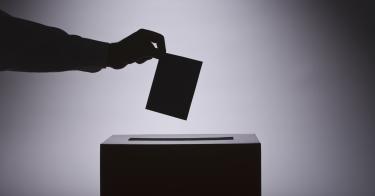Our right to vote has been won and preserved by the lives, blood and sacrifice of the patriots of the American Revolution, our war veterans, the suffragists, civil rights marchers and so many others throughout our history.
They risked everything so that you and I could freely exercise this sacred right and ensure the very survival of our republic. The least we can do is make sure their sacrifices weren’t in vain and work to ensure the integrity of our elections.
After Florida’s vote-counting debacle in the 2000 presidential election between George W. Bush and Al Gore, one would think that two decades would have given states plenty of time to get things right. While some states, including Florida, took steps to reform, lessons from past elections were lost on many, and now the mistakes—made more challenging in 2020 by mail-in ballots—have multiplied across the nation as a result.
If our public servants had implemented the reforms recommended in 2005 by the Commission on Federal Election Reform—a bipartisan commission formed to improve the integrity of our elections—we might not be in the situation we find ourselves in today.
Free and fair elections are the cornerstone of our constitutional republic, and every citizen, no matter their political persuasion, must be able to trust the voting process and its results, otherwise, our democratic system itself breaks down.
Reasonable people have to understand that recommendations like requiring voter ID, not allowing noncitizens to vote and making sure people can’t vote more than once in an election have nothing to do with suppressing the vote. Instead, it’s about ensuring that every single American’s legally cast vote gets counted, isn’t lost to some glitch or human error, and isn’t cancelled out by an illegal one.
I was a member of the Commission on Federal Election Reform, which was chaired by former Democratic President Carter and former Reagan Republican Secretary of State James Baker. We investigated the problems and vulnerabilities in our election system and made an extensive series of recommendations for reforms.
If the commission could get people on the left like former Sen. Tom Daschle and President Carter to agree with people on the right like Secretary Baker and me on these recommendations, you can be assured the recommendations weren’t about suppressing votes. They were about protecting the integrity of our elections. They were meant to give the American people confidence in election outcomes and the assurance that their vote meant something.
The commission’s report was filled with practical solutions to many of the recurring problems we’ve seen in elections since 2005.
For example, the commission recommended that state voter registration databases be shared among the states to eliminate duplicate registrations. That hasn’t happened, and too many states don’t cooperate in comparing their voter lists. As a result, it’s relatively easy for someone to register and vote in multiple states with little chance of getting caught.
Election officials have also failed to remove people who have moved out of state or died. A 2012 Pew study found that 24 million voter registrations in the U.S. were inaccurate, out of date or duplicates. The commission recommended that states do electronic matching with their own death records, drivers’ licenses, local tax rolls and other records. Yet, many aren’t bothering to do even that.
The commission said states should implement a voter identification requirement to ensure that people presenting themselves at the polling place match the registration list. While states like Texas, Georgia and Indiana have passed voter ID laws, some of the biggest states in the nation like California and New York haven’t. And only a small handful of states have extended their voter ID requirements to absentee votes. The commission also stressed the importance of verifying that only citizens are voting, recommending that states obtain proof of citizenship before registering voters. Yet, the left has consistently opposed such efforts. Because many states aren’t verifying, noncitizens can vote with little chance of being detected.
In fact, in 2017, the Public Interest Legal Foundation found in Virginia alone that more than 5,500 noncitizens had registered to vote and more than 1,800 of them had voted illegally multiple times.
The commission recommended many other improvements that, if implemented, could have prevented a lot of the current frustration we’re experiencing today.
Simple protections, like voter ID and updated voter registration lists, make perfect sense if we truly believe that every vote must count. Congress and the states have a duty to ensure that all eligible Americans are able to vote and that their votes aren’t stolen or diluted by fraud or administrative errors.
Officials should look at the commission’s recommendations and ensure they’re doing everything possible to protect the integrity of our elections—one of the most sacred trusts of our republic.
This piece originally appeared in the Washington Times




